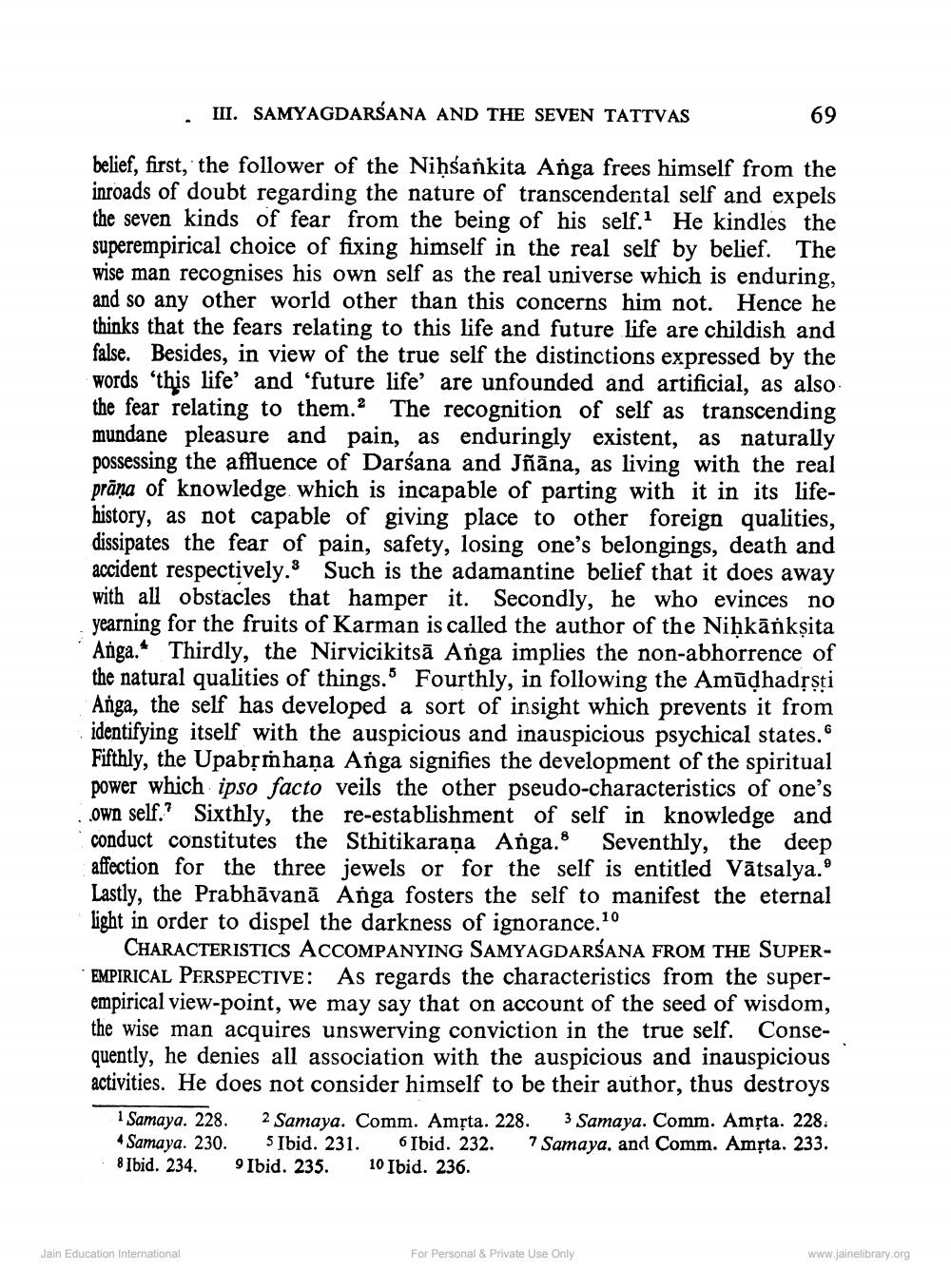________________
III. SAMYAGDARSANA AND THE SEVEN TATTVAS
belief, first, the follower of the Niḥśańkita Anga frees himself from the inroads of doubt regarding the nature of transcendental self and expels the seven kinds of fear from the being of his self. He kindles the superempirical choice of fixing himself in the real self by belief. The wise man recognises his own self as the real universe which is enduring, and so any other world other than this concerns him not. Hence he thinks that the fears relating to this life and future life are childish and false. Besides, in view of the true self the distinctions expressed by the words 'this life' and 'future life' are unfounded and artificial, as also the fear relating to them.2 The recognition of self as transcending mundane pleasure and pain, as enduringly existent, as naturally possessing the affluence of Darśana and Jñana, as living with the real prāna of knowledge which is incapable of parting with it in its lifehistory, as not capable of giving place to other foreign qualities, dissipates the fear of pain, safety, losing one's belongings, death and accident respectively.3 Such is the adamantine belief that it does away with all obstacles that hamper it. Secondly, he who evinces no yearning for the fruits of Karman is called the author of the Niḥkänkṣita Anga. Thirdly, the Nirvicikitsa Anga implies the non-abhorrence of the natural qualities of things. Fourthly, in following the Amudhadṛṣṭi Anga, the self has developed a sort of insight which prevents it from identifying itself with the auspicious and inauspicious psychical states." Fifthly, the Upabṛmhaṇa Anga signifies the development of the spiritual power which ipso facto veils the other pseudo-characteristics of one's own self. Sixthly, the re-establishment of self in knowledge and conduct constitutes the Sthitikaraṇa Anga. Seventhly, the deep affection for the three jewels or for the self is entitled Vatsalya." Lastly, the Prabhāvanā Anga fosters the self to manifest the eternal light in order to dispel the darkness of ignorance.10
CHARACTERISTICS ACCOMPANYING SAMYAGDARSANA FROM THE SUPEREMPIRICAL PERSPECTIVE: As regards the characteristics from the superempirical view-point, we may say that on account of the seed of wisdom, the wise man acquires unswerving conviction in the true self. Consequently, he denies all association with the auspicious and inauspicious activities. He does not consider himself to be their author, thus destroys
1 Samaya. 228. 4 Samaya. 230. 8 Ibid. 234.
Jain Education International
5 Ibid. 231. 9 Ibid. 235.
2 Samaya. Comm. Amṛta. 228. 6 Ibid. 232. 10 Ibid. 236.
69
3 Samaya. Comm. Amṛta. 228. 7 Samaya, and Comm. Amṛta. 233.
For Personal & Private Use Only
www.jainelibrary.org




